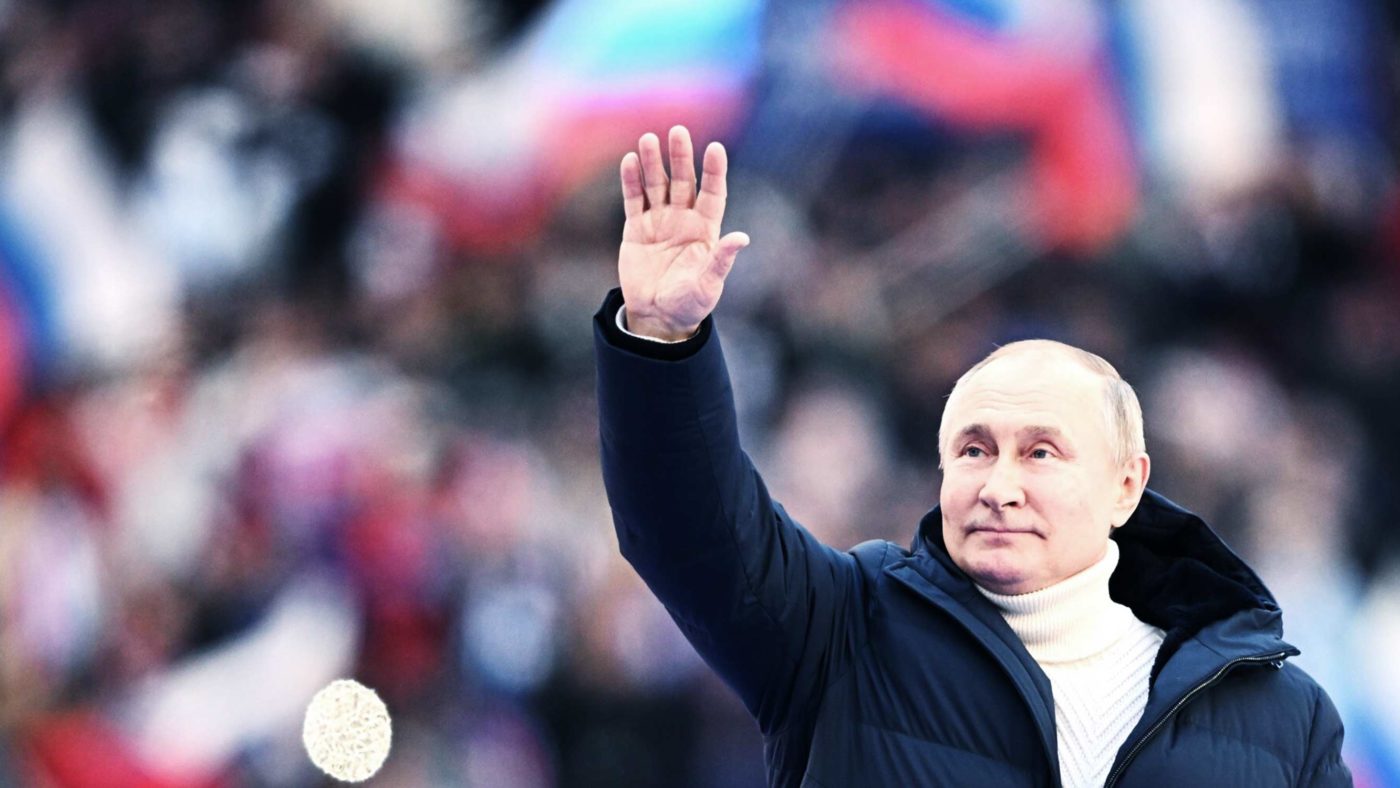A friend of mine who works at a major think-tank in Moscow went recently to a business conference at a remote town in eastern Siberia. When I asked him about the mood among the people he met there concerning the war in Ukraine, he said, ‘People were drinking ‘to our Victory’ and dreaming of capturing Warsaw.’
Another friend has a gardener at his country house outside Moscow who I will call Ivan. Ivan is a resourceful person who is always trying to ‘re-skill’ himself in a very ambitious and un-Russian way for a person without higher education. I have met him many times, often in connection with laying down a croquet lawn. We got on well. He was polite, honest, reliable and adaptable. He was always deeply sceptical of Putin, who he thought did not care anything about the Russian people. Recently, I asked his employer what Ivan’s position was on the war. ‘He supports Putin now,’ he told me.
I could give other examples, but space is limited. The question which arises is why do so many people in Russia support Putin now? It is a well-known fact that his approval ratings had been dropping fairly steadily since the glow of the Crimean invasion, which had sent them sky-high, started to wear off. Is a pattern emerging that in war Russians support their leader which, in turn, encourages the leader to foment war in order to produce another surge in support?
To an extent that is normal – all countries cluster round forceful leaders in times of stress, and all leaders try to exploit this. Even Churchill did that in 1945, though he failed badly. However in Britain support for Tony Blair collapsed as a result of the second Iraq war, but soared for Mrs Thatcher after the Falklands War.
What was the difference? While Iraq was a war without an obvious cause or justification for British involvement, the Falklands was plainly a war in defence of British subjects. Plainly the bulk of the country drew a distinction between a ‘good’ war and a ‘bad’ one.
That is, or should be, the boast of all counties in which there is a meaningful degree of reciprocity between the rulers and the ruled. Governments cannot simply go on an ego-rampage in the way Putin can. But Putin is a politician too, and he keeps a weather eye on the public mood through his ‘pollsters’ in the FSB. Are we then saying that Russians cannot differentiate between good wars and bad wars? If so, might that be the result of Kremlin control of the main television channels and the suppression of all dissenting voices?
Perhaps modern methods of opinion control are part of it, but there is a more ‘ancient’ reason. It is connected with royalty and permanence – and the UK is a case in point. Ever since the state (permanent) and the government (temporary) were separated after 1688, the Crown has provided all Britons with a focus of loyalty which has nothing to do with the current polices of the ruling party.
Patriots of all stripes support the United Kingdom, but that is very far from supporting the current ruling party. People can make a distinction between the country and the cabinet. Remember, for example, the no-confidence debates in the middle of the Second World War. There was nothing ‘unpatriotic’ in challenging the policies of the then government.
In Russia, both then and now, any such deviation from ‘house spirit’ would lead the proposer into either very hot water or a very cold jail cell.
The reason is that Putin is, conceptually, both Queen and Prime Minister at the same time. That allows him to tap into the fact that many Russians are deeply patriotic, in the best sense of the word. It also allows him to frame any criticism of his regime as an attack on Russia itself, rather than simply of the Kremlin’s policies.
Most Russians are usually very sceptical of their government, and have been since time immemorial. In the imperial era the Tsar, like God, was always ‘far away’ and all the evils done to the Russian people were the result of cruel bureaucrats in the nearest garrison town or scheming aristocrats at court. Nonetheless serf partisans fought like lions to expel Napoleon from Holy Russia, and they did so in the full knowledge that, after the war, they would return to their estates to be knouted and exploited by other Russians – albeit French-speaking ones.
Similarly in World War II. Boris Pasternak wrote about how relieved Russians were to be able to do something active and useful for their country after Hitler invaded. Today, if there were to be one reform which could be wished on Russia it would be the introduction of a complete separation of state and government. Only when Russia has a ‘Tsar’ and prime minister who occupy constitutionally separate positions can the patriotic spirit of Russians be allowed to flourish without forcing everyone to get behind a gangsterish leader who wants to exploit positive patriotism for wicked purposes.
That has been the true value of the Crown to all the people of the United Kingdom for the last 300 years.
Click here to subscribe to our daily briefing – the best pieces from CapX and across the web.
CapX depends on the generosity of its readers. If you value what we do, please consider making a donation.


